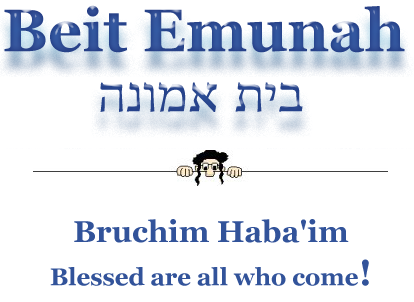
| |||||||||||

Our Dvar Torah: “Rachel is Weeping! Why Aren't we?”
We are currently within the Three Weeks of Mourning of Bein ha-Metzarim, which means “Between the Straits.” Our sages explain that there are five MAJOR events in particular that we mourn during these Three Weeks, but there are innumerable other woes our people experience during this period.
During this period we remember the following:
Moses returned from the heights of Har Sinai and broke the tablets when he saw the Jewish people worshiping the Golden Calf.
During the Babylonian siege of Jerusalem during the First Temple Period. Atthat time the Jews were forced to cease offering the daily sacrifices due to the lack of sheep caused by the violent conditions they were forced to endure.
Antiochus iv Epiphanes, AKA Apostomos, burned the Holy Torah. Even his name is blasphemous, meaning, “Antiochus the god.”
Antiochus also set up a idol of Zeus Olympus in the Temple in 168 b.c.e. It is also alleged that he caused a sow to be offered on the desecrated alter.
The walls of Jerusalem were breached by the Romans, in 70 CE, after a lengthy siege. (Three weeks later, after the Jews put up a valiant struggle, the Romans destroyed the second Holy Temple on the 9th of Av). Tisha B'Av will be remember this year on July 30th.
During the Three Weeks many Jews adopt various practices of mourning. These may include refraining from participating in public celebrations, getting haircuts and shaving, buying new clothes and so on.
The Three Weeks are a time to recall and mourn our many tragedies. For this reason many Jews refrain from potentially dangerous activities like swimming or adventure sports, lone hikes, and so on during this time. For those who pay attention, this period has traditionally been experienced with greater caution than normal.
Listening to music and attending performances such as theater or concerts is generally prohibited during Jewish times of mourning. Some Jews will listen to music that is performed a cappella, without instruments or percussion.
During the Three Weeks and Nine Days, it is traditional to recite “Al Naharot Bavel” (“By the Waters of Babylon”), a mournful song about the loss of the Temple and Jerusalem.
It should be noted that many of these customs are held primarily by Jews of Ashkenazic descent. Sephardic Jews often observe these practices only during the week of Tisha B’Av itself. Beit Emunah is a Sephardic based congregation.
Halachot of the Nine Days
The laws of the Nine Days, which begin on Rosh Chodesh Av, intensify the prohibitions of mourning.
During the Nine Days, many Jews do not eat meat or meat products (except on Shabbat) to deprive themselves of that pleasure. Laundry is not washed except in extreme need, and many Jews take short, cold showers to avoid the comfort of bathing. As always such customs are intended to promote mindfulness. As we enter into the Dark Days that are now dawning it is more vital than ever that we learn from the past in preparation for what is coming. We need to be stronger than we have ever been if we hope to survive as individuals.
How one observes this period of mourning and what one realizes through these practices are essential to our well being as a people. As the sun is setting on the West we know that Rachel is weeping for her children. Yet many of our people are not joining her lament and teshuvah. Many of us who live in the Diaspora fail to weep over the loss of our homeland. Many are quite happy living among the Goyim far away from our Home. Many of our people have forgotten our past. As antisemitism is again rising to historic levels our suffering is assured. Are you preparing? Consider the following from our Rebbe Nachman of Breslov.
We turn to Likutey Moharan, Book 2 # 67. In the three volume set this is in Volume 3, Page 249 and 254.
Based on Tehillim 138
By the rivers of Babylon, there we sat,
we sat and we wept, remembering Zion.
O Remember Zion. Lalala la.
On poplars we hung our lyres.
still our captors demanded songs,
still our tormentors, for their amusement said,
“Sing us one of the songs of Zion.”
“Sing us one of the songs of Zion.”
“Sing us one of the songs of Zion.”
But how can we sing a song of the LORD
here on foreign soil?
If I forget you, O Yerushalayim,
may my right hand wither;
and my tongue stick to my palate,
if I cease to think of you,
if I do not keep You in my consciounsess
even during my happiest times.
Judge O LORD against the Edomites
the day Yerushalayim fell;
O how our enemies cry to this day, “Strip her, strip her, to her very foundations!”
O Fair Babylon, you predator,
a blessing on those who repays you in kind
for what you have inflicted upon us;
O come Mashiach, Please come soon,
We've waited so long.
O come Mashiach, Oh please come soon,
We've waited so long.
Got Questions or Comments?
Let us knowVisit Our Shul: Beit Emunah
Be the Blessing you were created to be
And
Don't let the perfect defeat the good
index sitemap advanced search engine by freefind